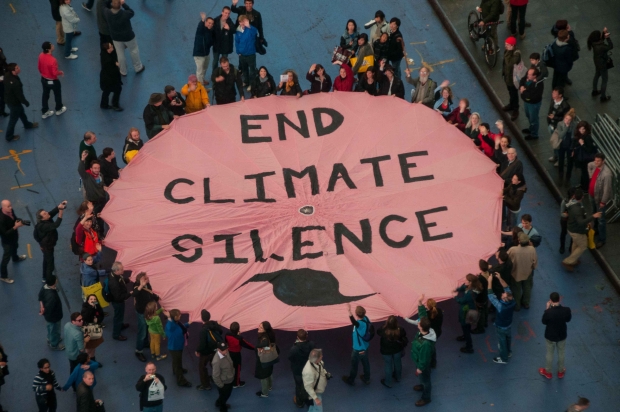


Hurricane Sandy’s Wake Up Call: What Will It Take To Bring People Into Balance With Nature?
Instinctive Human Nature Tries To Exploit Even The Most Horrendous Catastrophes For Self Gain The article “The politics of Hurricane Sandy” on the pages of The Economist, analyzes the election campaign consequences of the devastating Hurricane sweeping the US East Coast: Is Hurricane Sandy capable of altering the election result? The presidential candidates are hunkering down and trying to avoid looking partisan as this big, wet storm heads for the eastern seaboard. But any number of calculations are being made by the campaigns. Plausible arguments are flying, explaining why this storm is bad news, or is it good news, for both sides.” The instinctive behavior of politicians immediately thinking how they can benefit or lose as a result of a natural catastrophe is a very typical human reaction, since people’s subjective perception assesses things from the “What is in it for me?” vantage point. In truth this behavior is completely the opposite to how we should be looking at the current events. Many people would say that humans have nothing to do with these storms, hurricanes, volcanic eruptions or earthquakes. Every time there is a debate about global warming, or other man-made affects on the environment, many people, including leaders and scientists try everything they can do to prove that humanity, human behavior has nothing to do with these “cyclical natural” changes. Instead Of The Subjective Examination & The Denial Of Human Involvement In Natural, Environmental Changes, People Need To Examine The “Human Effect” In The Earth’s Living Ecosystem A step by step examination, looking at the world in terms of the dynamics of living ecosystems, might suggest a different picture,...In Response To Natural Catastrophes: Self Examination & Decision Time
A natural catastrophe always raises the uncomfortable question about human involvement. Some will say that such horrible events have nothing to do with human behavior, while others will link them to climate change and our effect on the planet. In a recent Project Syndicate article titled “Hurricane Sandy and Climate Change,” Professors J. Marshall Shepherd (Director of the Atmospheric Sciences program) and John Knox (receiver of the National Weather Association’s highest research award) of Georgia University, write the following: There is growing evidence of links between climate change and sea-level rise, heat waves, droughts, and rainfall intensity, and, although scientific research on hurricanes and tornadoes is not as conclusive, that may be changing. Indeed, recent reports by the United Nations’ Intergovernmental Panel on Climate Change (IPCC) and other scientific literature suggest that the intensity of hurricanes will increase as a result of warmer waters. And our atmosphere and oceans are, indeed, warming…” Thinking we might be contributors to the devastation brought upon us by Sandy is indeed startling, and as the professors say, “the scientific research needed to prove or disprove such a connection must still be conducted.” But while scientists are hesitant to give us a definite answer, Sandy serves as a grim reminder that regardless of how well we understand it, we are all little pieces within the bigger puzzle of nature. And we all depend on nature. In modern times, we have grown accustomed to seeing ourselves as a separate and superior part of nature. We feel we are entitled to use, consume and manipulate natural systems to satisfy our needs and serve our desires. Those...
